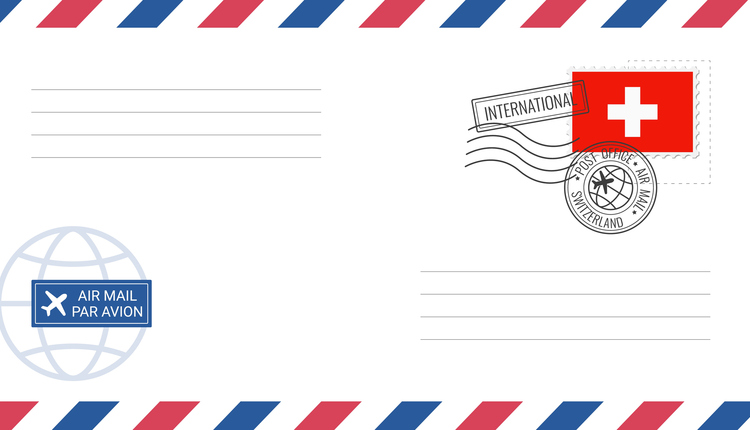Five factors affect all mailing decisions for international mail, and each will depend on what you are mailing, the destination country, and your requirements for delivery. The specifics of what is being mailed determine whether it can be mailed at all as well as where and how it can be mailed. The destination country will determine what is allowed into the country and which USPS mailing classes and services are available.
Prohibitions and Restrictions
Some items are completely banned in international mail, some are banned by individual countries, and some require permits. The permits can be required by either the destination country or the country of origin (which is likely the US for most readers) or by both. Lists of prohibitions and restrictions in international mail are available for downloading from the Universal Postal Union (UPU). The USPS International Mail Manual (IMM) International Country Listings have a summary of restrictions from each destination country, as well as limitations on mail classes and services.
Articles that are prohibited, restricted, or require a license may not be obvious. Export.gov, run by the Department of Commerce, has considerable information on export requirements. In particular, the Consolidated Screening List page offers links to the various lists and restrictions.
In addition to prohibiting items, the US prohibits doing business with some countries and some individuals. The Department of the Treasury website lists US sanctions programs and related country information. In particular, the Specially Designated National list needs to be checked against anyone placing an order or otherwise doing business with your organization. These sanction requirements change irregularly, but update notifications are available.
Customs
Goods sent to other countries are subject to customs inspection and clearance in the destination country. A customs form is required for goods, but not for documents, in international mail. IMM section 123 details the requirements for the forms for US mail, including definitions of documents and goods and which customs form is required for different mail categories. Checking the restrictions for destination countries, as mentioned above, can avoid returns and fines.
The Known Mailer designation, discussed in IMM section 123.62, may be of particular interest to those mailing periodicals or low-value items. (The TSA has a Known Shipper program that may be of interest to those sending items internationally through private shipping companies.)
For postal items, the customs duty and other taxes are normally paid by the recipient. When the recipient does not pay these fees, the goods are returned to the sender. Notifying the recipient of the potential fees can help reduce or eliminate returns for non-payment of the fees. Estimates of customs duties and other taxes in over 160 destination countries for specific goods are available on the customs information database from Export.gov. The instructions for using the database, with information from the International Trade Administration’s offices in the US and more than 75 other countries, are easy to follow. (There are commercial apps to estimate customs fees and taxes that can be integrated into website forms.)
Addressing
Obviously, a letter or package cannot be delivered if the address is incorrect or garbled. International addresses have both more and longer lines than US addresses. International addresses do not “fit” a US address template. Most importantly, the postal codes and the provinces or states, if any, do not fit into the US template.
International addresses have more than 40 different combinations of towns, provinces or states, and postal codes. Residents in most countries use neither a postal code nor a province or state when providing their address, although there are some countries with official postal codes that are not usually used by residents. The table below shows the number of characters and line in international addresses held in a selection of US corporate databases. (Note: UK addresses generally have more, shorter lines. The author believes shorter lines were combined to create fewer, but longer lines, in the addresses.)
| | Average number of address lines | Maximum lines | Average number of characters/line | Maximum characters/line |
| World | 5.9 | 10 | 14.8 | 54 |
| Germany | 5.4 | 8 | 15.9 | 30 |
| Mexico | 6.1 | 9 | 18.6 | 30 |
| UK | 6.8 | 10 | 11.3 | 40 |
| US | 4.1 | 6 | 18.9 | 30 |
It is important to allow sufficient space on any online or off-line forms, in databases, and on envelopes or labels to gather, store, and print international addresses.
Classes of Mail
The USPS has different classes of mail for outgoing international items than for domestic mail. Descriptions of the USPS international mail services are online for most services. Commercial ePacket, International Surface Air Lift (ISAL), and International Priority Airmail are USPS mailing services available through approved international mail consolidators called Postal Qualified Wholesalers (PQWs). PQWs receive volume discounts, under conditions approved by the Postal Regulatory Commission, and pass a portion on to their customers in much the same way as domestic mail consolidators.
Those items requiring a customs form are restricted to certain USPS classes of international mail. These restrictions were put into place in January, 2018 to meet the requirements of the UPU’s first phase of their Integrated Product Plan, which is supported by the US. All of the information on the requirements and restrictions are available from the USPS in the links cited above.
Tracking
If tracking is required or desired, postal options may be limited but they are expanding. The options on tracking are dependent on both the destination country and the USPS mail service selected. Additional services, such as signature requirements and insurance, affect tracking as well. Once the postal item reaches the destination country, tracking is the responsibility of that country.
More changes may occur in USPS international mail services and products with action by the White House or Congress on postal reorganization or reforms. Changes may also result from actions taken by the UPU Congress in Addis Ababa, Ethiopia, in October 2018. All changes are announced in advance in the Federal Register when changes are proposed to the IMM.
Merry Law is the owner of WorldVu, LLC. She is a member of the UPU’s POC Addressing Work Group and of the US International Postal and Delivery Services Federal Advisory Committee. She is an expert on international postal addressing and related issues. Contact her at mlaw@worldvu.com.












